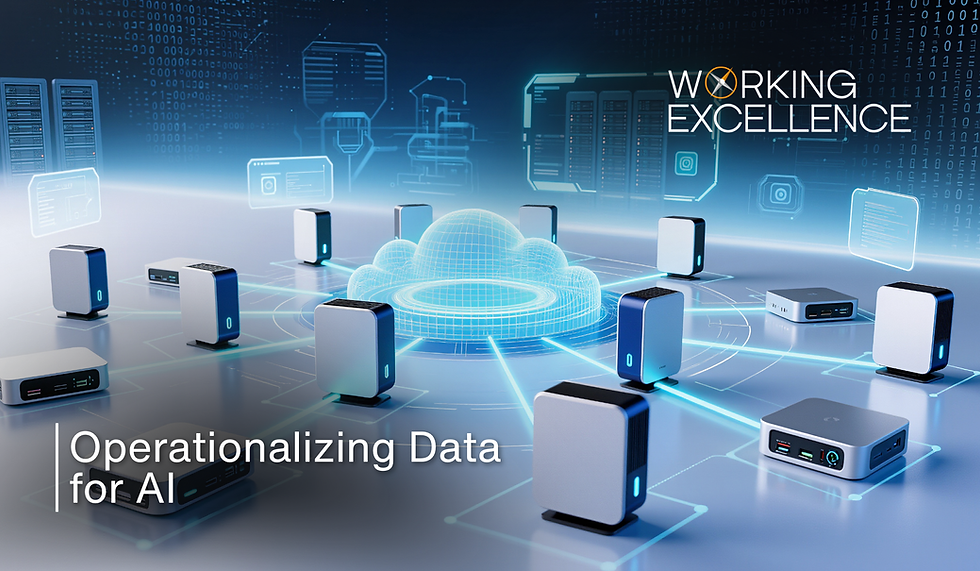The Transformative Role of AI Tools in Financial Planning
- Jerry Garcia

- Nov 1, 2024
- 3 min read
As artificial intelligence (AI) continues to evolve, its impact on financial planning is becoming increasingly significant. AI-driven tools are not only reshaping how wealth management is approached but are also empowering younger generations to take control of their financial futures. With the Great Wealth Transfer underway, where trillions of dollars will shift from baby boomers to millennials and Gen Z, the integration of AI in financial planning is timely and crucial.
Key Takeaways
AI tools are democratizing access to financial advice, particularly for younger investors.
The Great Wealth Transfer is expected to see millennials inherit approximately $4.4 trillion by 2025.
AI enhances personalization and efficiency in wealth management, but challenges remain in trust and complexity.
The Great Wealth Transfer
The Great Wealth Transfer refers to the anticipated shift of approximately $38.4 trillion from baby boomers to younger generations by 2045. This transfer is already in motion, with millennials projected to inherit significant wealth in the coming years. The implications for financial markets are profound, as younger investors are starting to engage with investment opportunities earlier than previous generations.
AI-Powered Tools in Wealth Management
AI is revolutionizing wealth management by automating processes, enhancing personalization, and making sophisticated financial advice accessible to a broader audience. Key benefits of AI in this space include:
Personalization: AI analyzes individual goals and market data to provide tailored investment strategies.
Efficiency: Automation reduces human error and accelerates decision-making, allowing users to manage their portfolios more effectively.
Democratized Access: AI tools are making advanced financial services available to individuals who previously lacked access.
However, challenges persist, including:
Complexity: Some users may find AI tools intimidating, necessitating better educational resources.
Trust Issues: Many investors still prefer human oversight for significant financial decisions.
Privacy Concerns: The need for sensitive financial data raises questions about data security.
Enhancing Financial Literacy
Younger generations are increasingly using AI-powered applications to improve their financial literacy. These tools help users track spending, learn investment basics, and build diversified portfolios. The educational resources provided by these platforms make financial decision-making more engaging and accessible, aligning well with the digital-native tendencies of millennials and Gen Z.
The Future of AI in Wealth Management
While AI is transforming the landscape, it is unlikely to replace human financial advisors entirely. Instead, a hybrid model is emerging where AI complements human expertise. AI excels in data analysis and routine tasks, while human advisors focus on complex financial situations and relationship-building.
The future of AI-enhanced wealth management promises a more seamless user experience, with tools becoming increasingly sophisticated. Potential advancements include:
Accurate Market Predictions: Enhanced algorithms for predicting market movements.
Real-Time Portfolio Rebalancing: Automated adjustments based on market conditions.
Hyper-Personalized Financial Education: Tailored learning experiences for users.
AI in 401(k) Plan Administration
AI is also making strides in the administration of 401(k) plans. By streamlining management processes and providing personalized recommendations, AI tools are helping both employers and employees navigate retirement planning more effectively. Key benefits include:
Streamlined Management: Automating compliance and administrative tasks.
Personalized Recommendations: Tailored advice for employees based on their financial situations.
In conclusion, AI tools are set to play a pivotal role in the future of financial planning, particularly for younger generations. As these technologies continue to evolve, they will likely enhance accessibility, efficiency, and personalization in wealth management, ultimately empowering individuals to take charge of their financial destinies.
Sources
AI for financial planning: New tools to empower younger generations to save, BenefitsPRO.
How AI Could Revolutionize 401(k) Plans, WealthManagement.com.
Can artificial intelligence replace human traders? - Professional Wealth Management, Professional Wealth Management.



